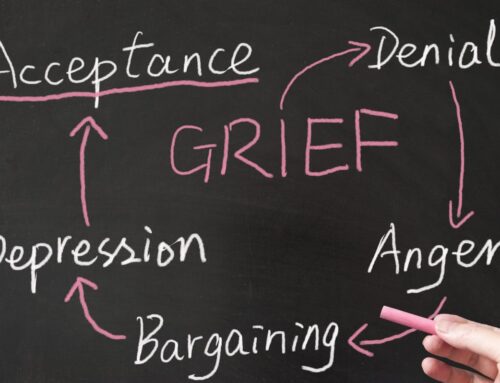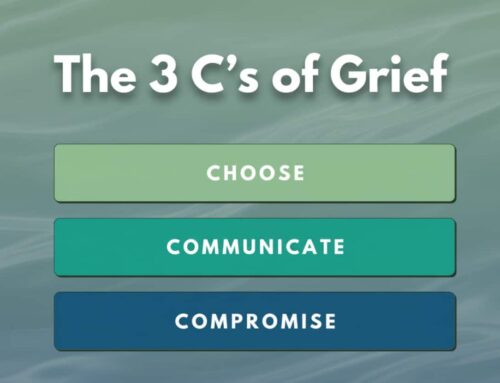Feeling overwhelmed is common and treatable. If daily life feels heavy, start with simple steps that reduce stress in the moment, then add supports that address causes over time. This page explains what overwhelm means, how it shows up, practical ways to manage stress today, and when to seek a grief counselling professionals help in Perth.
Urgent help: If you or someone else is at immediate risk, call 000. For non-urgent support, speak with your GP or a qualified mental health professional.
What does feeling overwhelmed mean?
Feeling overwhelmed means your mental load exceeds your perceived resources to cope right now. Situational overwhelm comes in short spikes during busy periods or after a single stressor. Persistent overwhelm lasts most days for two or more weeks and often affects sleep, mood and focus.
Naming the state reduces uncertainty and helps you pick the next action, whether that is a short reset, clearer boundaries, or booking professional help. Overwhelm is not a diagnosis of mental illness, but it can sit alongside anxiety, depression or other mental health conditions.
How does overwhelm show up day to day?
Typical signs include decision fatigue, irritability, racing thoughts, sleep disruption and withdrawal from usual activities. Physical symptoms can include a racing heart, shallow breathing, tense muscles, headaches or an unsettled gut.
Cognitive changes often look like brain fog, reduced attention and small tasks feeling larger than they are. Behavioural changes may include procrastination, avoiding social interactions and snapping at a loved one or good friend. A short daily note that lists symptoms, triggers and what helped becomes a simple fact sheet you can share with your clinician.
Why do I feel overwhelmed right now?
Common drivers include workload, role conflict, caregiving demands, health issues, finances and unresolved anxiety. Run a quick personal audit today. Check sleep duration and quality, caffeine after midday, evening screen time and any recent stressors. Red flags include persistence beyond two weeks, escalation and impact on function at work or home.
If anxiety sits under your overwhelming feelings, learn basics in our article: What is anxiety. Understanding your stress response and other factors like chronic pain or financial pressure can make a big difference to your plan.
Is it normal to feel mentally drained every day?
It is normal to have low days, but feeling mentally drained every day is a prompt to check your load and wellbeing. Distinguish normal tiredness from depletion. Tiredness lifts with rest. Depletion lingers and reduces motivation, interest and enjoyment. First steps that support overall health include a consistent 7 to 9 hour sleep window, a healthy diet with regular meals, light morning movement and outdoor light exposure. Reducing alcohol, moderating caffeine and spending time in nature often reduce feelings of overload and help emotions settle.
What are the signs of burnout or emotional exhaustion?
Emotional signs include cynicism, detachment and reduced empathy, while cognitive signs include lower focus and memory slips. Physical signs often include headaches, gut issues and poor sleep quality. Track duration and severity, then speak with your GP if symptoms persist. Because burnout and low mood can overlap with mood disorders, review this guide too: recognizing the signs of depression. If you notice ongoing low mood, loss of interest, appetite changes or thoughts of hopelessness, book a medical review.
What is the difference between stress and overwhelm?
Stress is a proportional response to a specific demand, while overwhelm is when even routine tasks feel beyond capacity. The difference matters for your timeline and supports. Short stress often settles with brief schedule changes, light exercise and relaxation techniques. Overwhelm usually needs deeper adjustments like workload renegotiation, practical help at home, healthy boundaries around time and devices, and targeted therapy skills for emotional regulation.
Can feeling overwhelmed be a symptom of anxiety?
Yes, overwhelm and anxiety commonly overlap because hyperarousal, worry loops and avoidance can make everyday tasks feel unmanageable. Co-occurring symptoms include restlessness, muscle tension and difficulty falling asleep. If you feel overwhelmed most days for two weeks, consider screening and skills training. Start here for practical strategies to manage stress and anxiety: anxiety management strategies. If your clinician identifies an anxiety disorder, they can discuss treatment options that fit your goals.
How does overwhelm affect mental health?
Short term, overwhelm leads to decision fatigue and productivity dips; longer term, persistent overwhelm increases risk of anxiety, low mood and avoidance patterns. Unchecked chronic stress raises stress levels, narrows coping, and often reduces self care. Small daily actions like a ten minute walk, a one-screen rule in the evening and brief breathing exercises protect mental health while you address bigger drivers. These steps help your body settle, which supports clearer thinking.
How do I explain to others that I feel overwhelmed?
Use “I” language that pairs emotion, context and a clear request. For example, “I feel overloaded after back-to-back meetings. I need one hour without interruptions to reset. Can we shift the afternoon plan?” Share what helps and what does not. Choose timing and channel that lower friction, such as a calm moment or a short note before a conversation.
What are simple ways to manage daily stress?
Use a 90-second reset that combines diaphragmatic breathing, muscle release and orienting to the room. Try this deep breathing pattern: inhale through the nose for 4, hold for 2, exhale through the mouth for 6, pause for 2. Repeat six cycles. Add shoulder rolls to relax tense muscles and name five things you can see to anchor attention. Reduce inputs by triaging notifications, batching email and using a one-screen rule at night.
Support physiology with a short walk, balanced meals and a consistent sleep window. For more tools, see how to manage stress.
What are signs I need a mental health break?
Markers include persistent exhaustion, frequent tears or irritability, dread before routine tasks and a drop in work quality or self care. If you feel stuck, plan a micro-break such as a long weekend with clear boundaries or a short leave arranged with your manager and GP. Set a start date, list supports and schedule a review point. If panic, spiralling worry or avoidance increase, get help through anxiety counselling and book a GP appointment.
Can mindfulness help when I feel overwhelmed?
Mindfulness helps reduce rumination and reactivity, and you can start with three minutes a day. Sit comfortably, place a hand on your belly and count five slow breaths. When the mind wanders, return to the breath without judgement. Pair mindfulness with a short walk for extra benefit. Track effects weekly by noting sleep onset, muscle tension and reactivity to triggers. To see how mindfulness fits into therapy, read How cognitive behavioural therapy works for skills that improve emotional regulation and coping mechanisms.
When should I seek professional help?
Seek professional help when overwhelm persists for two or more weeks, affects function or includes panic symptoms, self-harm thoughts or increased substance use. Your GP can screen for mental health issues, discuss treatment options and refer you to the right mental health professional. In a first consult, ask about approach, availability and fit. If grief or loss is part of your story, explore grief counselling.
What therapy options and costs should I expect?
Common options include Cognitive behavioural therapy for thought-behaviour patterns, Somatic psychotherapy for body-based regulation and integrative psychotherapy for insight and skills. Sessions can be in person or Telehealth and offered as individual, couples or group programs. Frequency and session length shape outcomes and costs. Learn more here: Cognitive behavioural therapy, Somatic psychotherapy and Therapy costs. If finances are tight, ask about sliding scales, packages or group options and speak with your GP about referral paths.
How can I prepare for my first appointment?
Write two or three priorities with one recent example each, note medications and sleep patterns, and bring questions about goals and approach. A short list helps you focus and gives your clinician a clear starting point. Agree on next steps and set a review after three or four sessions. For a broader overview, read Psychotherapy to see how different approaches can reduce stress, improve overall health and support long-term wellbeing.
Simple plan you can start today
1) Reset your body three times a day. Use the 90-second breathing exercise before breakfast, lunch and dinner.
2) Protect one healthy boundary. Choose one action, such as no email after 8 pm, and keep it for seven days.
3) Move most days. A brisk walk or light exercise reduces stress and anxiety and improves sleep.
4) Build a small support list. Add a family member, a good friend and your GP so you can seek support quickly.
5) Prioritise good quality sleep. Keep a consistent window, dim screens an hour before bed and keep caffeine early.
FAQ
How can I tell if my overwhelm is a mental illness or a normal reaction to stress?
Look at duration, intensity and function. If symptoms persist beyond two weeks, escalate or impair work, study or relationships, book a GP visit to screen for anxiety, depression or related conditions.
Which relaxation techniques work best when I feel overwhelmed right now?
Start with slow nasal breathing and a brief muscle release. Six cycles of 4-2-6-2 breathing plus gentle shoulder rolls lower arousal fast. Add a short walk to settle the stress response.
Do I have to meditate every day for mindfulness to help?
No. Mindfulness can be woven into daily life, such as counting five breaths or noticing five sensations in the shower. Short, frequent practice builds the skill.
Can lifestyle changes replace therapy?
Lifestyle changes help many people, but they do not replace therapy when symptoms are persistent or severe. If you feel stuck or easily overwhelmed despite self care, combine daily habits with professional help.
Final note
Overwhelm is understandable and changeable. You can manage stress in a healthy way, practise relaxation techniques, set healthy boundaries and talk with a mental health professional who understands your life. If symptoms persist or affect daily life, seek support. If there is immediate risk, call 000.
Related Posts
Fees And Rebates
We offer cost-effective solutions that can fit within your budget. The insights and skills acquired in therapy can continue to positively impact mental and emotional health long after the therapy sessions have ended, making it a truly worthwhile investment in yourself.















